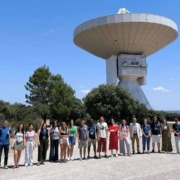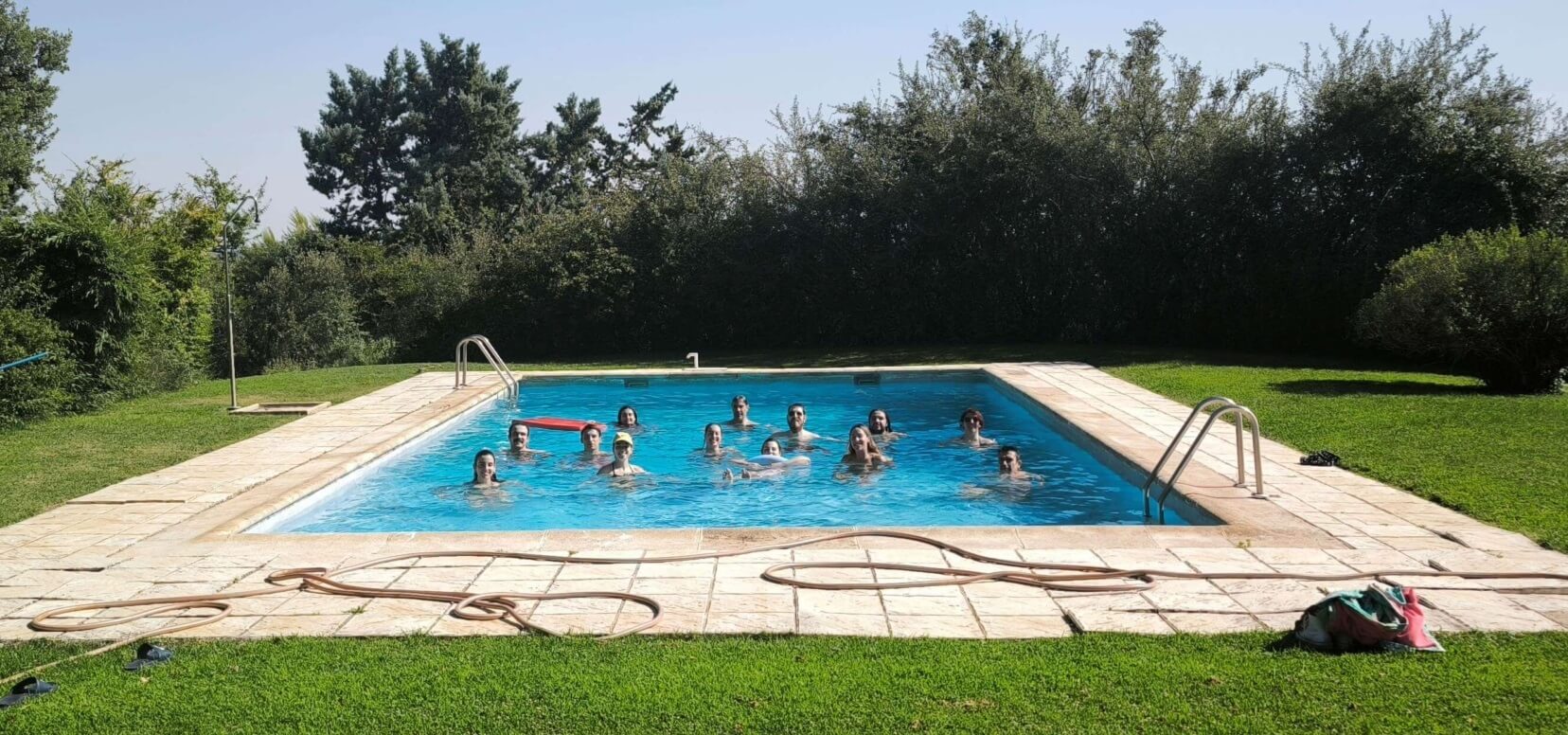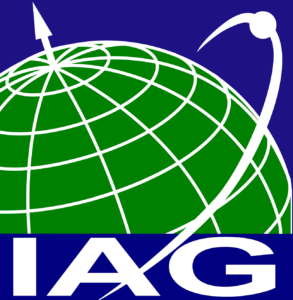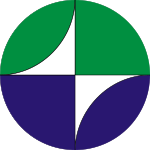Highlights from 1st GGOS IberAtlantic Summer School
The Yebes Observatory (National Geographic Institute of Spain) recently hosted the first summer school on space geodesy organized by GGOS IberAtlantic, a GGOS affiliate for the Iberian Peninsula and Atlantic region, including Spain and Portugal.
GGOS IberAtlantic was established in 2024 and aims to serve as a unified voice in the region to communicate scientific findings in an accessible way, allowing the public and policymakers to better understand changes occurring on our planet. By highlighting geodesy’s contributions, GGOS IberAtlantic seeks to help attract new projects, funding, and skilled professionals to the field. The course aligns with the key group’s objective of addressing the shortage of students and professionals in the field of geodesy in both countries. By showcasing the work carried out at these geodetic observatories, the initiative aims to attract young researchers to the discipline.
The Summer School successfully combined specialized training, practical experience and cultural activities, aiming to foster scientific vocations, strengthen geodetic capabilities, and build collaborative networks across the Ibero-Atlantic region.Held from July 14 to 18, the school brought together eight early-career researchers from Spain and Portugal for five days of intensive theoretical and practical sessions on modern space geodesy techniques, in the unique setting of the Yebes Observatory, the first GGOS Core Site in Spain. The event also welcomed additional IGN staff and interns, reaching 20 daily participants and featuring 14 expert speakers from Spanish and Portuguese institutions.
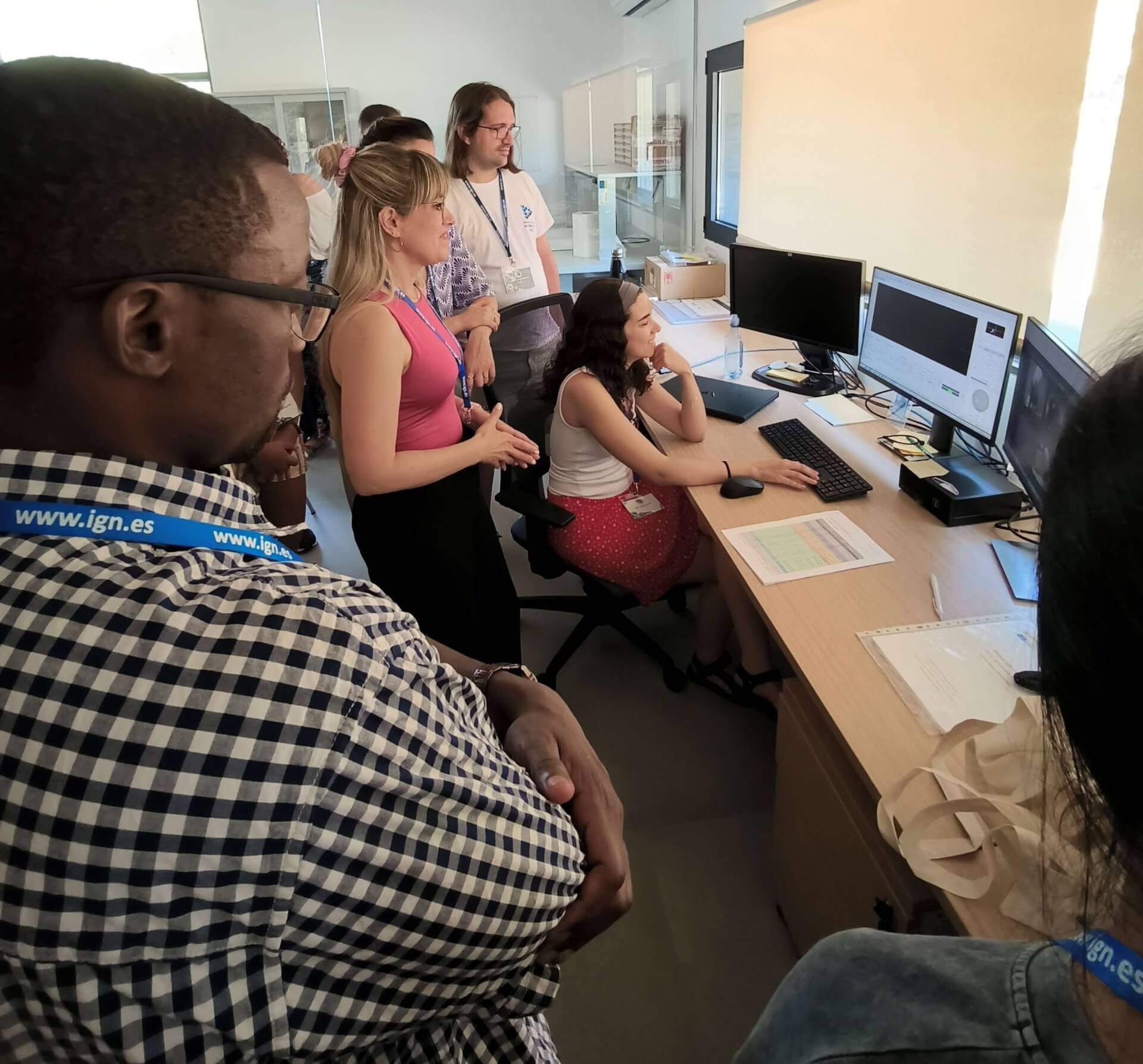
Students during a hands-on SLR practical session. [Copyright: Esther Azcue]
- Tuesday focused on VLBI with theoretical and hands-on sessions on correlation and data analysis. The day concluded with a cultural visit to Alcalá de Henares, a city renowned for being the birthplace of Miguel de Cervantes, the celebrated author of Don Quijote de la Mancha.
- Wednesday focused on GNSS, with sessions on precise positioning and PPP techniques. Participants also learned about permanent GNSS stations and their role in geodetic networks. The day ended with a visit to the Royal Observatory of Madrid, offering historical and scientific insights into Earth observation.
- Thursday was centred on Satellite Laser Ranging (SLR). Students engaged in practical training on engineering aspects and orbit estimation, and had the opportunity to perform SLR observations themselves. The day concluded with an informal dinner and a nighttime stargazing session, fostering both learning and community building.
- Friday addressed the integration of geodetic techniques through sessions on local ties, emphasizing the importance of combining data from different observation methods to enhance geodetic accuracy and consistency.
The initial intention is to hold the school every two years and to assess the feasibility of opening it to international students in future editions, depending on the availability of funding. This first edition was financed by organizations that are part of GGOS IberAtlantic. The school was free of charge for participants, and accommodation was provided on-site at the observatory.
GGOS IberAtlantic considers this first edition of the school to be a great success. It is hoped that the participants will continue to engage with geodesy throughout their future careers. In any case, an unforgettable week was created, bringing together individuals genuinely interested in geodesy and fostering a vibrant learning community!
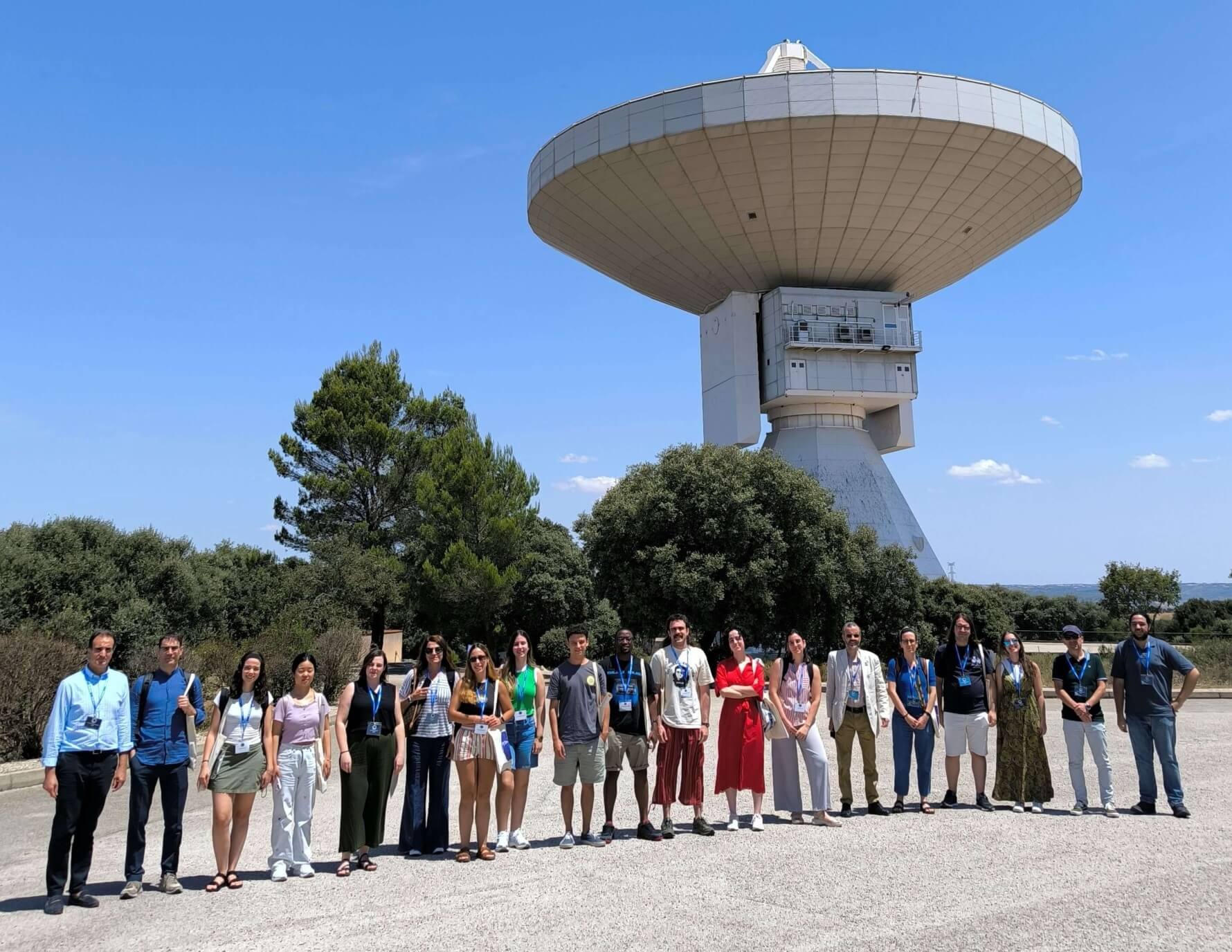
Group in front of the 40-meter VLBI antenna at Yebes Observatory.
Author: Esther Azcue

